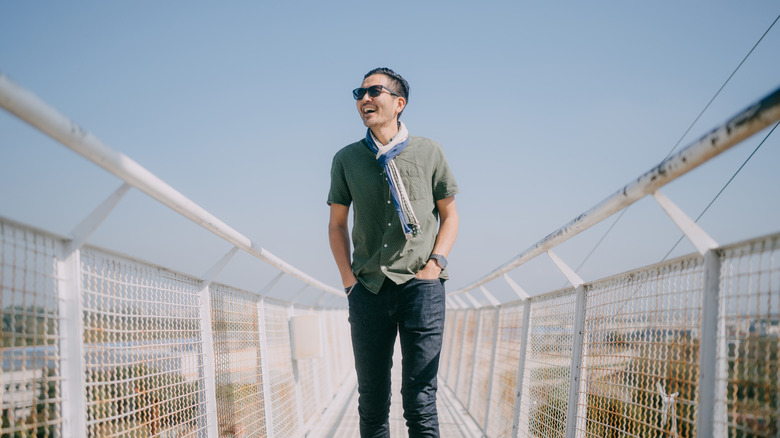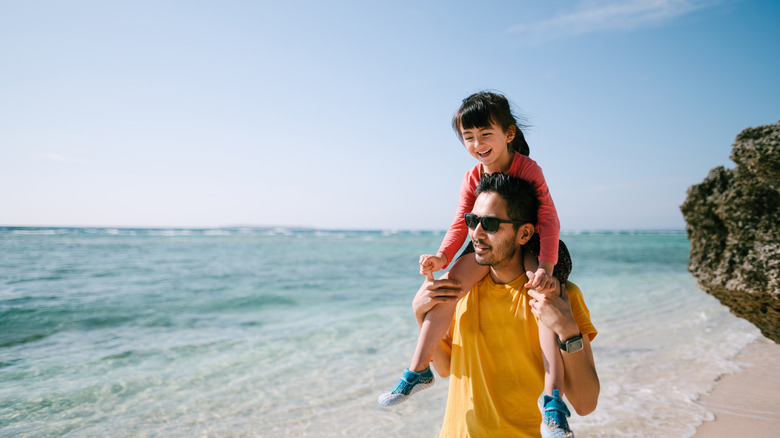Wearing This Popular, Useful Accessory In Japan Will Out You As A Tourist Instantly
English needs a new word — for something between a "societal rule" and a "cultural stereotype." This word might describe Brazilians' general distaste for peanut butter or Germans' impatience for small talk. No laws dictate these behaviors. They're not quite customs, and they aren't expectations, like taking off your shoes in a Chinese home or eating an Indian meal with your right hand. They're just general habits in a given place, where it would be a little odd to do otherwise. Are there chatty Berliners? Of course, but we won't bet on meeting them. Not every New Yorker feels the need to dress up to attend a Broadway show, but many do.
What's the perfect example of this imaginary word? Japanese people preferring not to wear sunglasses. There is no law against sunglasses. No one will recoil in horror at your slick shades. Parents will not cover their children's eyes as you pass, to spare them the sight of naked Ray-Bans. There are many Western habits that Japanese people would find truly offensive, but this isn't one of them. You can find sunglasses in Japanese stores; in fact, the luxury eyewear company Matsuda is headquartered in Japan. But if you walk down a Tokyo street on a sunny day, you won't spot many shaded specs. For whatever reason, people in Japan opt out of these optics — and even if you look like you could be a Japanese native, donning sunglasses may out you as a foreigner.
To shade or not to shade in Japan?
But wait — what is the reason? There are lots of theories about Japanese people and sunglasses: Many assume that blue and hazel eyes are more sensitive to UV damage, although this doesn't explain why brown-eyed Westerners wear sunglasses. Others note that many Japanese people wear surgical masks — for reasons beyond COVID protection — and sunglasses would fog up or obscure the face completely. The most dramatic explanation is the Yakuza, or mobsters: In popular culture, hitmen and otherwise suspicious characters are often portrayed as wearing sunglasses, which make them look intimidating. Curiously, some Japanese businesses have forbidden female employees from wearing regular eyeglasses, because they look "cold."
Maybe no single reason exists for sunglass abstention, and there's evidence that these accoutrements are growing more popular in Japan, especially for driving or on bright summer days. None of this should have any effect on sunglass-wearing tourists, except that people on the street may assume you are one. Japan has a good number of cloudy and overcast days, especially during the muggy mid-summers, so even light-sensitive eyes won't need them much of the year anyway. And while you're deciding what to bring for your Japanese sojourn, here are 15 essential travel hacks.

